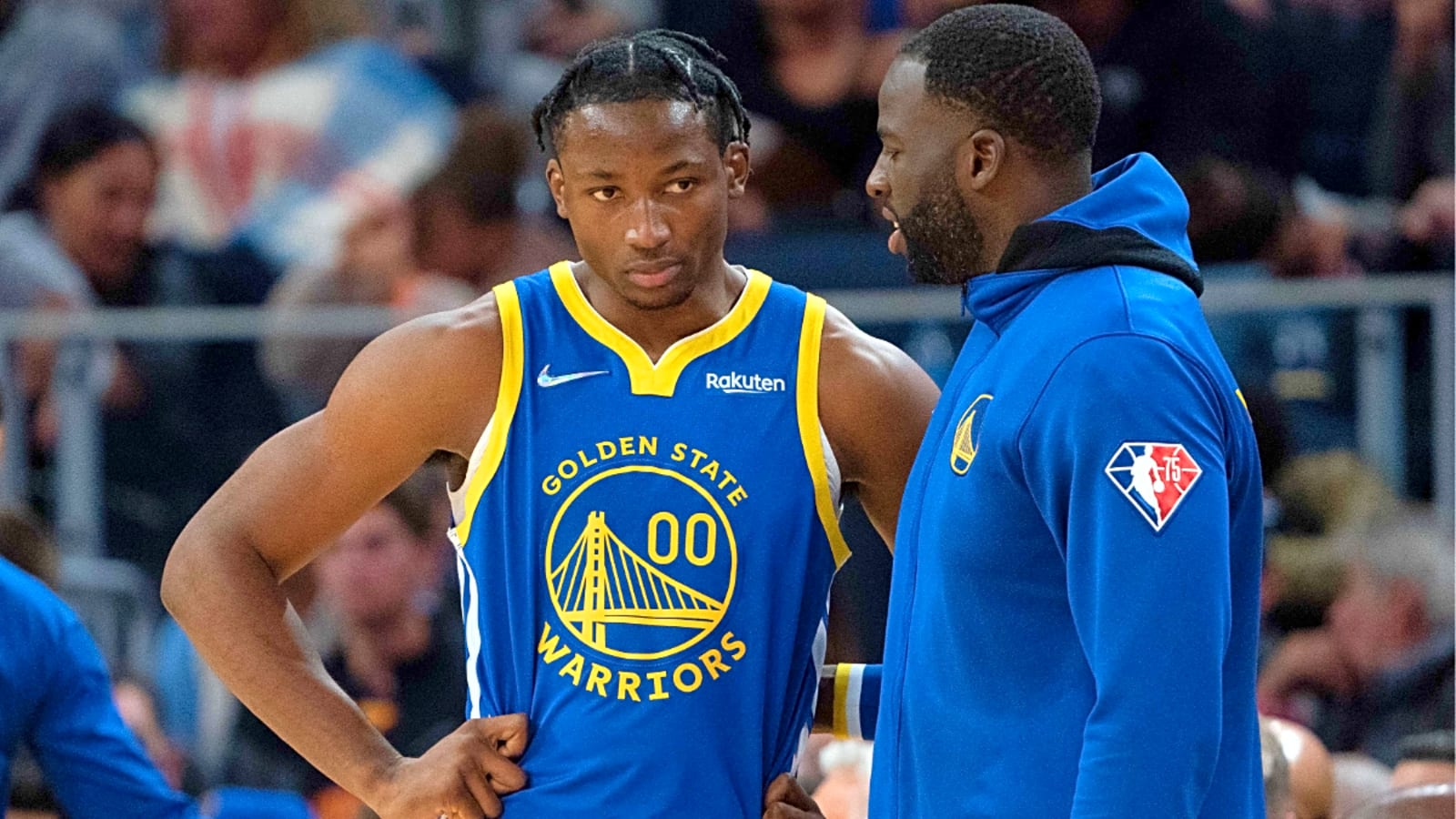
Offers, counteroffers, and a war of words only produced a stalemate for the Golden State Warriors. Cutting it close to October 1, when Jonathan Kuminga’s $7.9 million qualifying offer would expire, the two have reached for a new solution. However, the new two-year agreement with the Dub Nation at $48.5 million, which begins right in the 2025-26 season, comes with a sacrifice. Throughout the summer, the 22-year-old and his agent were angling for a player option, but instead, they received a team option.
What Is a Team Option in NBA Contracts?
According to the NBA’s website, it makes a team eligible to maintain a player on its roster for another year. Meaning, the team has the cards and has control over the player’s future. If a player commits to a 2+1-year kind of deal, the 1 being the team option, this can play out in two ways. In the third year, the franchise can exercise the right and extend the contract. But if they don’t, then the player’s contract ends at that point, and the player becomes a Free Agent.
Now, reverse the roles, we have the Player Option clause. Instead of the team, it gives a player the option to accept or decline a contract already agreed upon for the following season. If the player refuses to exercise this option (therefore opting out), the player becomes an unrestricted free agent.
How Does a Team Option Work in Rookie Contracts?
Team options work exactly the same in rookie contracts, with just one exception. All regular contracts can have only one option year. But in the rookie-scale contracts, contracts for first-round picks, those contain a team option for two years. Continuing the previous example. For Rookies, this becomes a 2+2 offer, giving them more financial stability at the start of their professional career.
Jonathan Kuminga’s Contract Situation Explained
Coming back to the Warriors forward, he was their 1st round overall 7th pick. Meaning, the team always liked the 22-year-old and his potential. On Aug 03, 2021, the Congolese native signed a four-year regular rookie scale contract totaling $24.9 million with Golden State. The first two seasons were guaranteed, and the next were options. In the next two seasons, the Warriors exercised their team option to lock in the player for the future. That brings us to this year, where there was a lot of drama.
The Dub Nation made multiple efforts to secure the future of Jonathan Kuminga. Previously, they offered two years and $45 million with a team option, and earlier this month, they raised it to a three-year, $75 million contract with a team option. The players’ agents had pushed for a player option, seeking maximum control over future earnings. Instead, the team option grants Golden State the ability to revisit financial commitments next year, a subtle but meaningful lever in the team’s broader luxury tax and roster strategy.
Kuminga’s case shows how valuable team options are for franchises and how tricky they can be for players.
Is Jonathan Kuminga’s Sacrifice in the Contract Related to the Team Option?
Yes, his situation is closely tied to the power team options given to franchises. The agreement itself, a two-year, $48.5 million deal with a team option, resolves the immediate standoff but leaves open questions about long-term planning. ESPN’s Shams Charania added that the second year of the deal has a team option that is “designed for the contract to be ripped up” and allow Kuminga to jump into free agency.
Plus, this allows the Warriors to trade Jonathan Kuminga mid-season, starting January 15. Several league insiders told ESPN and Associated Press that Kuminga’s contract is “team-friendly” compared to his upside. Similarly, Bobby Marks of ESPN noted the structure — with a team option in year two — gives Golden State flexibility while leaving Kuminga exposed if he outplays the contract. “If he has a breakout season, he could find himself locked into below-market pay for 2026.”
Other NBA Players Who Dealt With Team Options
Just this summer, apart from Jonathan Kuminga, we had three other players who had their contract issues dangling over their heads. Cam Thomas, Josh Giddey, and Quentin Grimes. Interestingly, all three players had different resolutions in the offseason. Cam Thomas signed a one-year, $6 million qualifying offer to return to the Brooklyn Nets. On the other hand, Josh Giddey got paid handsomely as he negotiated a four-year, $100 million deal with the Bulls.
Until now, Philadelphia’s Quentin Grimes remains a restricted free agent. This clearly signified that some accepted long-term security, while others gambled on shorter deals for more control.
More must-reads:
- Wolves star Anthony Edwards to miss time with hamstring strain
- Zion Williamson already out for Pelicans' third game with injury
- The 'Most 2,000-point NBA seasons' quiz
Breaking News
Trending News
Customize Your Newsletter
 +
+
Get the latest news and rumors, customized to your favorite sports and teams. Emailed daily. Always free!








